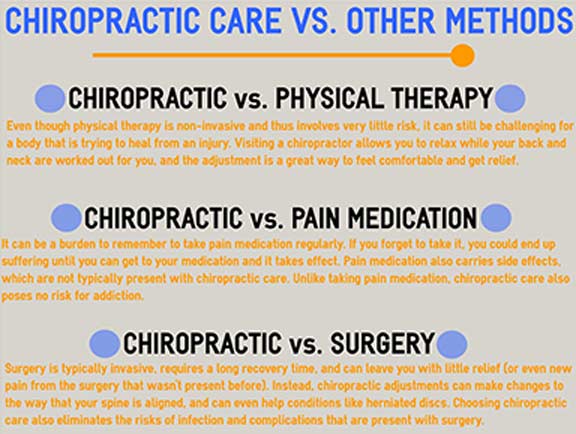Nutrition'S Effect On Neck And Back Pain Relief: Dietary Choices To Accept And Those To Avoid
Nutrition'S Effect On Neck And Back Pain Relief: Dietary Choices To Accept And Those To Avoid
Blog Article
Produced By-Cochrane Nicolajsen
When it comes to handling your neck and back pain, the food options you make can considerably influence exactly how you feel daily. spine pain causes being able to relieve your discomfort just by adjusting what you eat. By recognizing the duty of nourishment in neck and back pain monitoring and recognizing which foods to include or stay away from, you can take proactive steps towards a much healthier and much more comfy lifestyle. The connection between nourishment and back health is much more profound than you might realize-- let's check out just how certain foods can either soothe or worsen your pain in the back.
Importance of Nutrition in Pain In The Back
Nourishment plays a crucial role in handling neck and back pain. Your diet can substantially affect swelling levels and overall pain degrees in your back. Eating a balanced diet plan abundant in nutrients like vitamins D and K, calcium, magnesium, and omega-3 fatty acids can help in reducing inflammation and enhance bones, which are vital for back health and wellness.
Furthermore, preserving a healthy weight with proper nourishment can ease anxiety on your back, decreasing the threat of neck and back pain.
Moreover, certain nutrients like anti-oxidants located in fruits and vegetables can aid battle oxidative anxiety and promote healing in the body, consisting of the back muscles and back.
On the other hand, taking in too much amounts of refined foods, sweet drinks, and unhealthy fats can contribute to inflammation and weight gain, aggravating pain in the back.
Foods to Consume for Back Health And Wellness
To support a healthy back, including nutrient-rich foods right into your day-to-day dishes is vital. Consisting of foods high in antioxidants like berries, spinach, and kale can help in reducing inflammation in your back, reducing pain and pain. Omega-3 fats located in fatty fish such as salmon and mackerel have anti-inflammatory homes that can benefit your back wellness.
In addition, taking in nuts and seeds like almonds, walnuts, and chia seeds provides necessary nutrients like magnesium and vitamin E, which sustain muscle feature and reduce oxidative anxiety. Integrating lean proteins such as poultry, turkey, and tofu can assist in muscle mass repair work and maintenance, promoting a solid back.
Don't fail to remember to include dairy or strengthened plant-based alternatives for calcium to sustain bone wellness. Last but not least, moisten with plenty of water to maintain your spinal discs moistened and functioning efficiently. By consisting of these nutrient-dense foods in your diet, you can nurture your back and support total spine health.
Foods to Stay Clear Of for Neck And Back Pain
Opt for avoiding refined foods high in sugarcoated and trans fats when looking for relief from pain in the back. gonstead chiropractor of foods can add to swelling in the body, which may exacerbate neck and back pain. Say no to sugary treats like candy, breads, and sweet drinks, as well as fast food products like hamburgers, fries, and fried hen that are typically filled with trans fats.
Furthermore, steer clear of foods consisting of high degrees of polished carbohydrates, such as white bread, pasta, and breads, as they can surge blood glucose levels and potentially get worse inflammation in the body.
It's also important to limit your intake of foods high in saturated fats, like red meat and full-fat milk products, as they can contribute to swelling. Processed foods like delicatessens meats, chips, and packaged treats are typically high in saturated fats and need to be consumed in moderation.
Conclusion
Finally, focusing on your diet regimen and making wise food choices can have a substantial influence on managing pain in the back. By integrating nutrient-rich foods like berries, fatty fish, nuts, and lean proteins, and preventing processed and sugary items, you can help reduce swelling and support on the whole back health and wellness. Keep in mind, what you eat plays a critical function in how you really feel, so see to it to prioritize your nourishment for a much healthier back.
